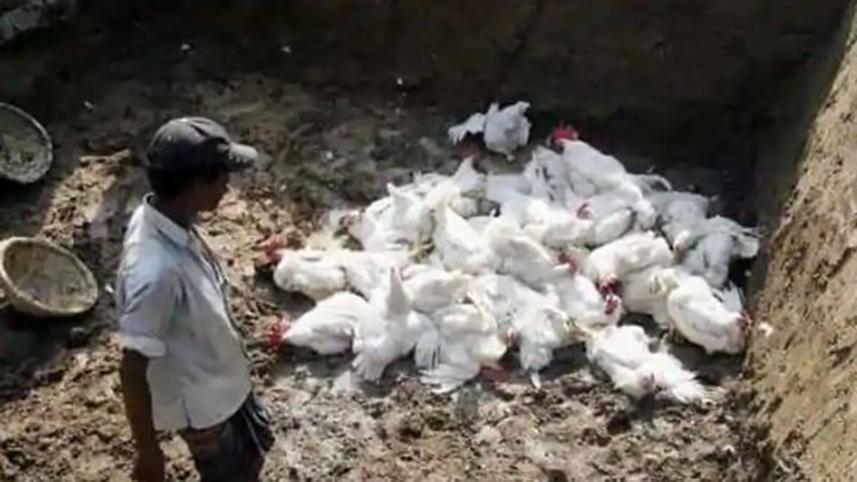Indian states sound alert to contain new strain of bird flu

Several states across India have sounded an alert to contain the H5N8 strain of bird flu while Kerala began culling thousands of chickens and ducks.
In southern India, Karnataka and Tamil Nadu stepped up surveillance and formed guidelines following the outbreak of the viral infection in neighbouring Kerala where around 1,700 ducks have died due to the flu, reports our New Delhi correspondent.
The operation to cull birds in and around a one-km radius of the affected areas in Alappuzha and Kottayam districts of Kerala was launched a day after results of samples tested at the National Institute of High Security Animal Diseases in Bhopal confirmed the outbreak of the bird flu in the two districts.
In the affected areas of Neendoor panchayat in Kottayam district, the rapid response teams have culled some 3,000 birds so far, authorities said. On a farm in Neendoor, around 1,700 ducks had died due to the viral infection.
In the north's Haryana state, more than four lakh poultry birds have died at farms in Panchkula district in the past 10 days, officials said, adding that a team from Regional Disease Diagnosis Laboratory has collected samples. There are no confirmed reports of avian influenza till now, an RDDL spokesperson said.
In the heartland state of Madhya Pradesh, officials said that 155 dead crows in Indore have been found with the H5N8 strain since the pathogen was first detected in the city a week back, while in adjacent state Rajasthan, birds in Kota, Jhalawar and Baran were found with the infection.
Officials in Himachal Pradesh surveyed the area around a sanctuary in Kangra district to check the spread of the flu to domestic poultry birds, a day after samples of dead migratory birds there tested positive for H5N8.
Till now, 2,700 migratory birds, mostly bar-headed geese, have been found dead in the lake area and samples have been sent for testing, state animal husbandry officials said.
Jammu and Kashmir sounded an alert and started collecting samples to check the health of birds flocking during winters, officials said.
"The avian influenza spreads rapidly, there could be a likelihood of humans getting affected. So, as a precaution, the directorate general of health services has evolved a contingency plan for the management of human cases," Tamil Nadu Health Secretary J Radhakrishnan said.
Indian government has issued an advisory to take steps to avoid further spread of the infection and set up a control room in New Delhi to keep watch on the situation and to take stock on daily basis.
Avian Influenza viruses have been circulating worldwide for centuries with four known major outbreaks recorded in the last century and India notified the first outbreak of avian influenza in 2006.
An Indian government statement said infection in humans from birds is not yet reported in the country and there is no direct evidence that avian influenza viruses can be transmitted to humans via the consumption of contaminated poultry products.
However, it cautioned that the secondary spread by human handling (through fomites) cannot be ruled out.
In India, avian influenza spreads mainly by migratory birds which come during the winter months from September to October and from February to March.



 For all latest news, follow The Daily Star's Google News channel.
For all latest news, follow The Daily Star's Google News channel.
Comments